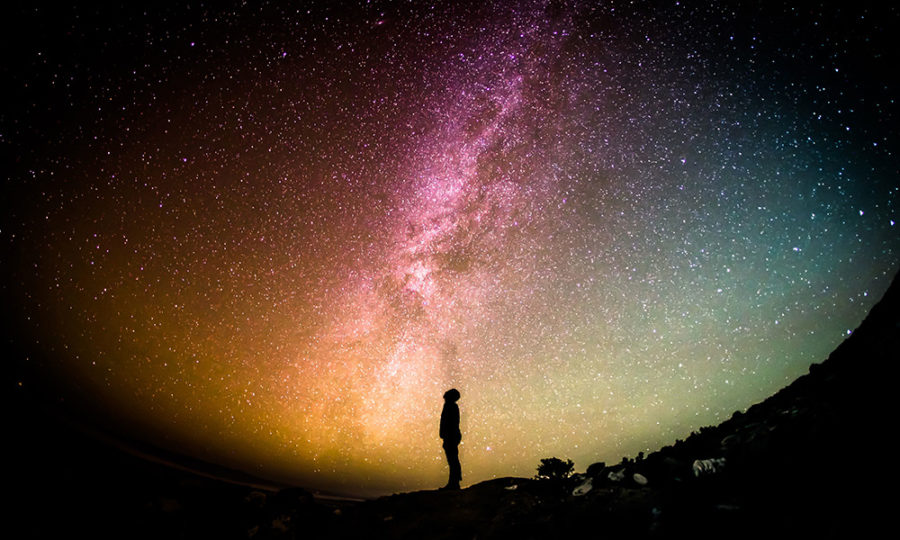Elon Musk announced in September 2016 that SpaceX aims to have humans colonizing Mars by 2024. I confess, I was immediately excited. Having been raised on Star Trek, expanding the reach of human exploration has been part of my imagination for a long time. However, when I stopped to think about Musk’s announcement, my excitement dimmed.
In particular, I thought about Hannah Arendt’s remarks on the launch of the Sputnik satellite on October 4, 1957. In the prologue to the Human Condition, Arendt comments that the Cold War overwhelmed the awe-inspiring aspect of a launching a satellite into space. She writes, “The immediate reaction, expressed on the spur of the moment, was relief about the first ‘step toward escape from men’s imprisonment to the earth’” (p. 1).
To Arendt, the statement that space travel was an “escape from men’s imprisonment on the earth” implies that the human condition is something to be escaped, to be abandoned, to be left behind. This sentiment is explicit in Musk’s speech: “I really think there are two fundamental paths [for humans]: One path is we stay on Earth forever, and some eventual extinction event wipes us out. [. . .] The alternative is, become a spacefaring and multi-planetary species.”
Arendt uses Sputnik as an opportunity to reflect on how technocratic and bureaucratic our modern world is becoming. We leave scientific and other matters to professional scientists and politicians without engaging in public deliberation about them as citizens who share a world. What is at stake is the loss of the world. For Arendt, the world is the shared public space where humans can appear before each other, where they can speak and act together. It provides stability for our interactions and enables our shared political community.
Space travel doesn’t just ask us to leave the Earth, our physical home. For Arendt, it implies a rejection of collective action in our current world. I am reminded of a comment a friend made, that intergalactic travel seems somewhat trivial when people are starving. The point my friend wanted to make, as I understand it, is this: As a community, we can come together to address political and social ills without racing for the stars. Perhaps if we’re reaching for the stars, we’re also at risk of ignoring the real inequalities that are embedded here on Earth.
Of course, it is not space travel as such that might be a problem for Arendt. If we make it to the stars, the human condition will stow away for the ride (The best recent example of this is Carter Scholz’s short story “Gypsy,” originally published in the Magazine of Science Fiction & Fantasy, November/December 2015). Arendt’s concern is that we are becoming world-less. The lack of public discourse around scientific and technological advancements indicates that opportunities and spaces for collective meaning-making are disappearing. Perhaps more worrisome is that we, as people who share this world, are responsible for giving up these opportunities.
The loss of the world prompts Arendt to philosophy: “What I propose, therefore, is very simple: it is nothing more than to think what we are doing” (5). As I launch this blog as part of my new website, it is my goal take up this mantle to think what we are doing. The tagline for the website, “philosophy in the world,” is inspired by Arendt. I seek for my philosophical work to be embedded in the world and in service to maintaining it as a space for speech and action.
And yet, there can be hubris in this goal. It would be a mistake to interpret Arendt as suggesting that the world needs more philosophers. She is critical of philosophy for remaining in the realm of abstraction and being unconcerned with the world humans share.
When abstractions, yet politics requires intersubjectivity, particularity, and context. After all, it is “men, not Man, [that] live on the earth and inhabit the world” (HC 7).
Arendt’s distinction raises questions that I see as common across philosophical discourse today. Many philosophers seek to show how they are relevant to public concerns, especially in a neoliberal climate that suggests that philosophy is not worth pursuing.
At the University of Waterloo, for example, we’ve launched an Applied Philosophy PhD program, which acknowledges that philosophy (or at least some philosophy) “involves engaging with and reflecting on real, practical situations and problems, and also requires bidirectional thinking—reflecting fruitfully both on how existing philosophical ideas and theories help us understand and solve practical problems, and also on how the details of actual cases lead us to reexamine and reformulate existing theories.”
Although Arendt distances herself from being a philosopher, her corpus expresses the urgent need to think philosophically. Though reflection has its pleasures in its own right, it is necessary to preserving the world. It is in this spirit that I launch this website. Whether my blogging goals are possible from an Arendtian perspective, I reserve for a future post. That being said, I will follow Arendt’s lead in writing to understand. In sharing these writings, it is my hope that we can work toward understanding together
